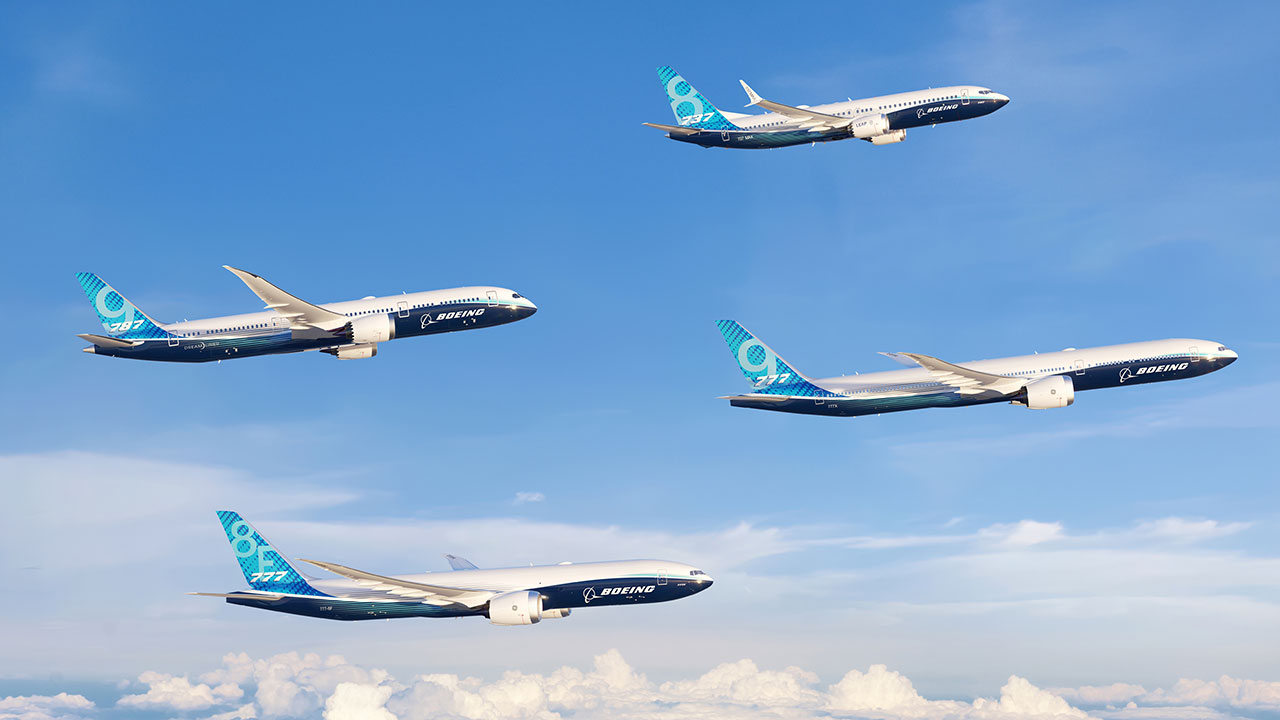
(Photo : Boeing)
Boeing family
- Boeing has reached a historic tentative pay agreement with the International Association of Machinists and Aerospace Workers (IAM), averting a potential strike.
- The agreement includes the largest-ever general wage increase, lower medical costs, greater retirement contributions, and better work-life balance.
- This deal deepens Boeing's commitment to the Pacific Northwest, securing job stability and reinforcing its investment in the region.
In a significant development for the global aerospace industry, Boeing, one of the world's leading aerospace manufacturers, announced a historic tentative pay agreement with the International Association of Machinists and Aerospace Workers (IAM) on September 8, 2024. The agreement, which represents more than 33,000 employees, marks the end of weeks of intense negotiations and successfully averts a potential strike.
The agreement is a testament to the power of collective bargaining and the importance of worker representation in shaping fair and equitable employment contracts. It also underscores the critical role of unions in advocating for workers' rights and ensuring that their voices are heard in corporate decision-making processes.
Stephanie Pope, Boeing Commercial Airplanes President and CEO, stated, "We've heard what's important to you for the new contract. And we have reached a tentative agreement with the union on a historic offer that takes care of you and your family." This statement reflects the company's commitment to addressing its employees' concerns and prioritizing their welfare.
The contract offer includes the largest-ever general wage increase, lower medical cost share to make healthcare more affordable, greater company contributions toward retirement, and improvements for a better work-life balance. These provisions are expected to significantly enhance the financial security and overall well-being of Boeing's employees.
The IAM had been advocating for a 40% pay increase during their first full negotiation with Boeing in 16 years. The agreement represents a significant victory for the union and its members, demonstrating the effectiveness of collective bargaining in achieving substantial improvements in pay and working conditions.
Boeing's Commitment to the Pacific Northwest
The agreement also deepens Boeing's commitment to the Pacific Northwest, a region with a rich history of aerospace manufacturing. "Boeing's roots are here in Washington. It is where generations of workers have built incredible airplanes that connect the world. And it's why we're excited that, as part of the contract, our team in the Puget Sound region will build Boeing's next new airplane," Pope said in a statement. This commitment not only secures job stability for the employees represented by the IAM but also reinforces Boeing's historical ties and investment in the area.
The agreement covers more than 33,000 employees represented by "IAM 751" primarily in Washington and "W24" in Portland, Oregon, with a small group of employees in California. This is the first full negotiation between Boeing and IAM 751 and W24 in 16 years. After ratification of a new contract in 2008, employees approved two contract extensions in 2011 and 2014. The current 8-year extension began in 2016.
Implications for the Broader U.S. Aerospace Industry and the Economy
The agreement is expected to have far-reaching implications for the broader U.S. aerospace industry and the economy. By averting a strike, it ensures continuity in Boeing's production, which is critical for maintaining the industry's output and avoiding disruptions in the supply chain. This stability is essential for the aerospace sector, which is a major contributor to the U.S. economy.
Moreover, the agreement secures jobs and provides wage increases, which can boost employee morale and job satisfaction. This, in turn, can lead to higher productivity and retention rates, benefiting both the company and the local economies where Boeing operates. The commitment to build the next airplane in the Pacific Northwest signals potential for future investments in the region, which can stimulate local economies and encourage ancillary businesses to grow.
By addressing worker concerns and improving benefits, Boeing can maintain a skilled and motivated workforce, which is key to staying competitive in the global aerospace market. Higher wages can lead to increased consumer spending, which can have a positive ripple effect on the broader economy. This is particularly important given the industry's size and the multiplier effect of its spending.
The deal may also set a precedent for labor negotiations in other industries, potentially influencing wage and benefit trends across the U.S. job market.









